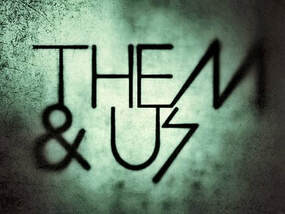
“This is an attack not just on the Moslem community but on every human being wanting to live in peace and harmony. This morning we said special prayers for the members of the Mosques, for those killed and those hurt, and for their families. I feel deeply proud to tell my community how closely I work together with the Moslem community and other faith and non-faith communities. I hope that with our close working relationship and the friendships that have developed we will bring hope to our terrified Moslem communities and ultimately bring hope and peace to a broken world. We must never underestimate our work for peace and harmony and its impact in the wider world. May God wipe away tears from all faces and may we witness the day when hate is vanquished and love rules”.
This is such a beautiful expression of what interfaith relations are all about – a sense of solidarity and friendship between faiths and people of faith, a friendship that’s a sign of hope and a witness to the fact that another way is possible. A few years ago, when Pope Francis met the Grand Imam of Al-Azhar University in Cairo, he said something that I’ve never forgotten and find encouraging. He said ‘The meeting is the message’, which says to me that even to meet and establish friendships, to engage in dialogue has a message for a world in which many people see faiths as being at logger heads with one another.
However, interfaith relations cannot just remain at that level. It also needs a deeper dialogue about faith and values, about the differences in our religions while accepting our common humanity. But our common humanity does not make us the same and we have different perspectives on life and faith, including how we view the world and our place in it. Many in the Muslim community see themselves as a minority in society and attacks such as that in New Zealand bring out feelings of vulnerability and insecurity so that many tell of their fears going to Mosques, of being recognised as Muslim and therefore the subject of attacks, either physical or verbal.
Perhaps this is the reason that attacks on Synagogues and Mosques engender more energy and protests than attacks on Churches. Already this year there have been attacks on Churches in India, Pakistan, the Philippines and bombs found in a Cathedral in Egypt. Churches in Pakistan have been put on high alert in the light of the New Zealand attacks – because Christianity is associated with white colonial powers and therefore white supremacism? Somehow the media doesn’t seem to take attacks outside developed countries as seriously as attacks on countries with a white majority population. Could it be that attacks in these countries bring terrorism too close to home for comfort. But Christians here in the West also seem to be more accepting of these attacks. We do pray for the victims and remember them during Church services. What we don’t hear are public statements decrying the atrocities and don’t often, if ever, organise public vigils to which we invite public figures to speak out against the atrocities and assure Christians that they are a valued part of society and not to fear discrimination. This, I think, is because we’ve been in the majority and don't feel the need to assert ourselves. Though there is a secular anti-religious agenda current in society today, I doubt if any Christian feels that an attack on Churches elsewhere will put them in danger. As a majority community we feel more secure of our place in society though terrorist attacks against society in general can make many people feel vulnerable and insecure, religious or not.
Terrorism, violence and religious hatred have to be named and denounced. We cannot stand by and say nothing but we also need to talk about it and to try to understand it, share our responses to it. Violence, terrorism doesn’t happen in a vacuum. Why do people hate? Is it a protest against a system that doesn’t listen, that doesn’t allow for equal participation, that is based on privilege and wealth rather than equality of opportunity, that is unjust in its structures, that builds up frustration and powerlessness, that speaks of peace while selling arms for profit – the list is endless. Whatever the answer, however, it’s important to remember that just as we carry the victims of violence in our hearts, so too we must carry the perpetrators and remember always the heroism, love, and compassion that is also part of the human story.



 RSS Feed
RSS Feed
